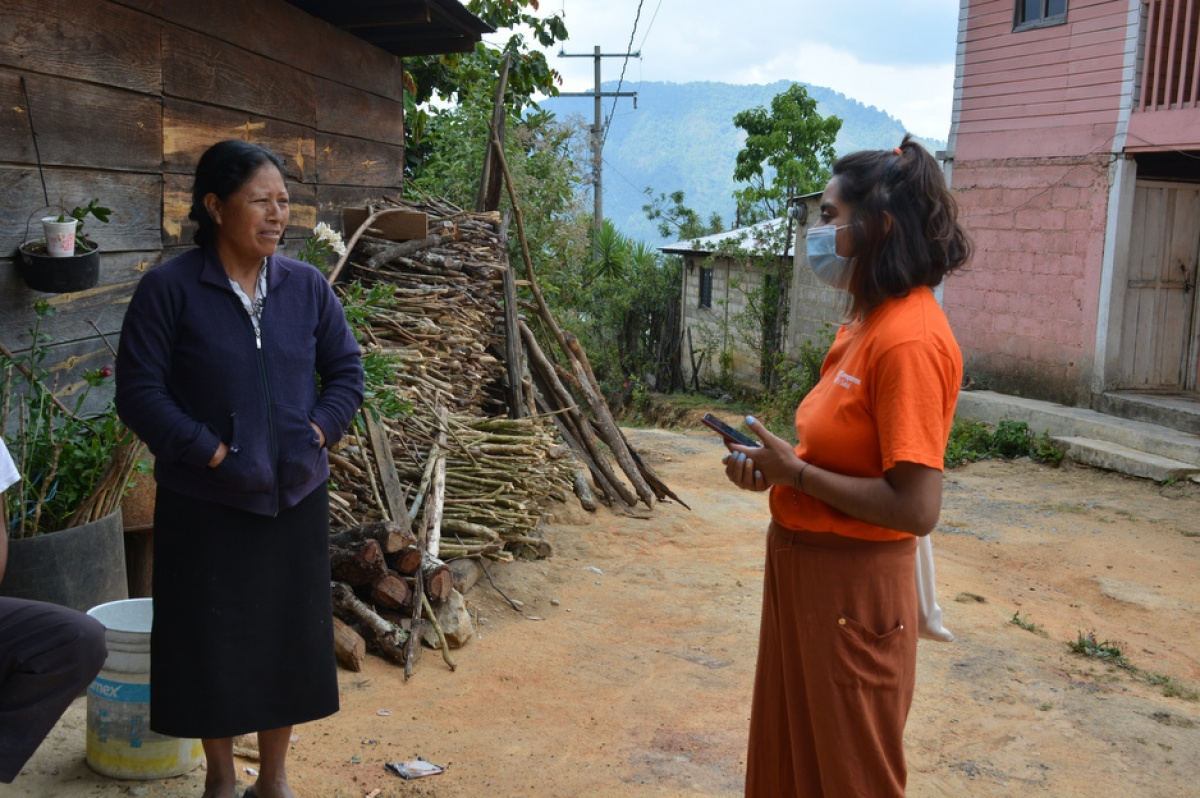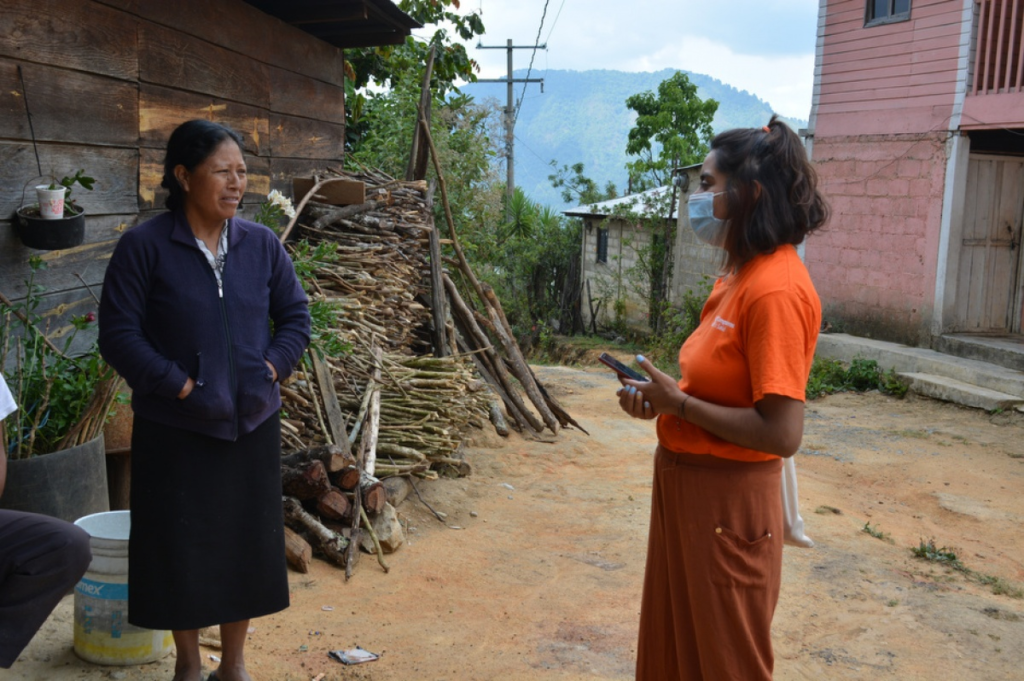In Mexico, PIH Team Fights Misinformation Around COVID-19 Vaccines

Listening to rural communities is essential to building trust
Posted on Sep 1, 2021

At the end of 2020, after almost a year of uncertainty, social isolation, and anxiety, a glimmer of hope appeared: the arrival of COVID-19 vaccines in Mexico.
By August, 17% of Mexicans had been fully vaccinated, and 26 million had been given at least one dose. But that progress, while significant, has been overshadowed by a worrying reality. Across the country, 91 million people are still waiting for vaccines, even as the the third wave of the pandemic triggers a surge of new cases in several areas.
Those concerns have intensified for clinicians in the rural communities in Chiapas where Compañeros En Salud, as Partners In Health is known locally, has worked for more than a decade.
Although vaccinations began there in early July for people over 30, health workers were surprised to find that many of the vaccination centers were completely empty. People were simply not showing up. It was not for lack of outreach, or lack of vaccines in the area, or limited hours of operation. The main obstacle was much harder to pin down: misinformation.
“We have found that there are many rumors and myths about the vaccine,” says Sandra Vázquez, a community manager with Compañeros En Salud. “This misinformation happens all over the country.”
The rumors around COVID-19 and vaccinations range from plausible—such as the idea that vaccines are ineffective—to sensational—that temperature check devices used to screen for COVID-19, when aimed at someone’s head, will wipe their memory, or that the vaccine implants a microchip into the patient, used by the government for tracking.
Such misinformation makes the push to vaccinate everyone that much harder. But health workers like Vázquez are determined to face these issues head-on.
To fight misinformation, Vázquez partners with Compañeros En Salud’s dozens of community health workers—driving out to the rural communities, knocking on doors, and distributing pamphlets with information about the virus and the vaccines.
The efforts, so far, have paid off—while data on vaccine acceptance is difficult to come by, Vázquez and her colleagues at Compañeros En Salud have seen an uptick in people lining up for vaccines, following her team’s outreach.
Community clinics, once empty, are now filled with people asking about vaccines. At the clinic in Reforma, for example, a one-day vaccine campaign successfully vaccinated 300 people—so many that health workers ran out of vaccines. In Honduras de la Sierra, a two-day campaign vaccinated 500 people against the virus.
The key to countering misinformation, says Vázquez, isn’t talking—it’s listening. Listening opens the door for conversation—and change.
“Exchanging knowledge and dialoguing is how we can better understand where these myths come from and share official information,” she says.
Listening has been core to Compañeros En Salud’s work for years, as it has closely partnered with nine rural communities in the coffee-growing Sierra Madre region of Chiapas.
From incorporating traditional forms of midwifery and care into its clinical practices, to regularly meeting with community leadership and government partners, Compañeros En Salud has for years sought to be not only an implementer, but a partner in providing culturally appropriate and quality care locally.
In few moments has that spirit of partnership been as clear as during COVID-19, as Compañeros En Salud rapidly mobilized to respond to a pandemic that has devastated millions worldwide—providing the PIH-supported community hospital in Jaltenango with training, resources, and staff; implementing strict infection and prevention control measures; and opening a brand new, seven-bed Respiratory Disease Center for patients with severe COVID-19, in an area where such facilities are extremely rare.
“What I enjoy most about my work is talking with people, sharing their dynamics, and learning from their experiences,” says Vázquez. “I have seen in them a lot of strength, resilience, and resistance.”
Originally published on pih.org



